The Ukrainian Warrior Elite
It's not surprising that a few are still willing to defend their country, but rather that so many have fought doggedly until now
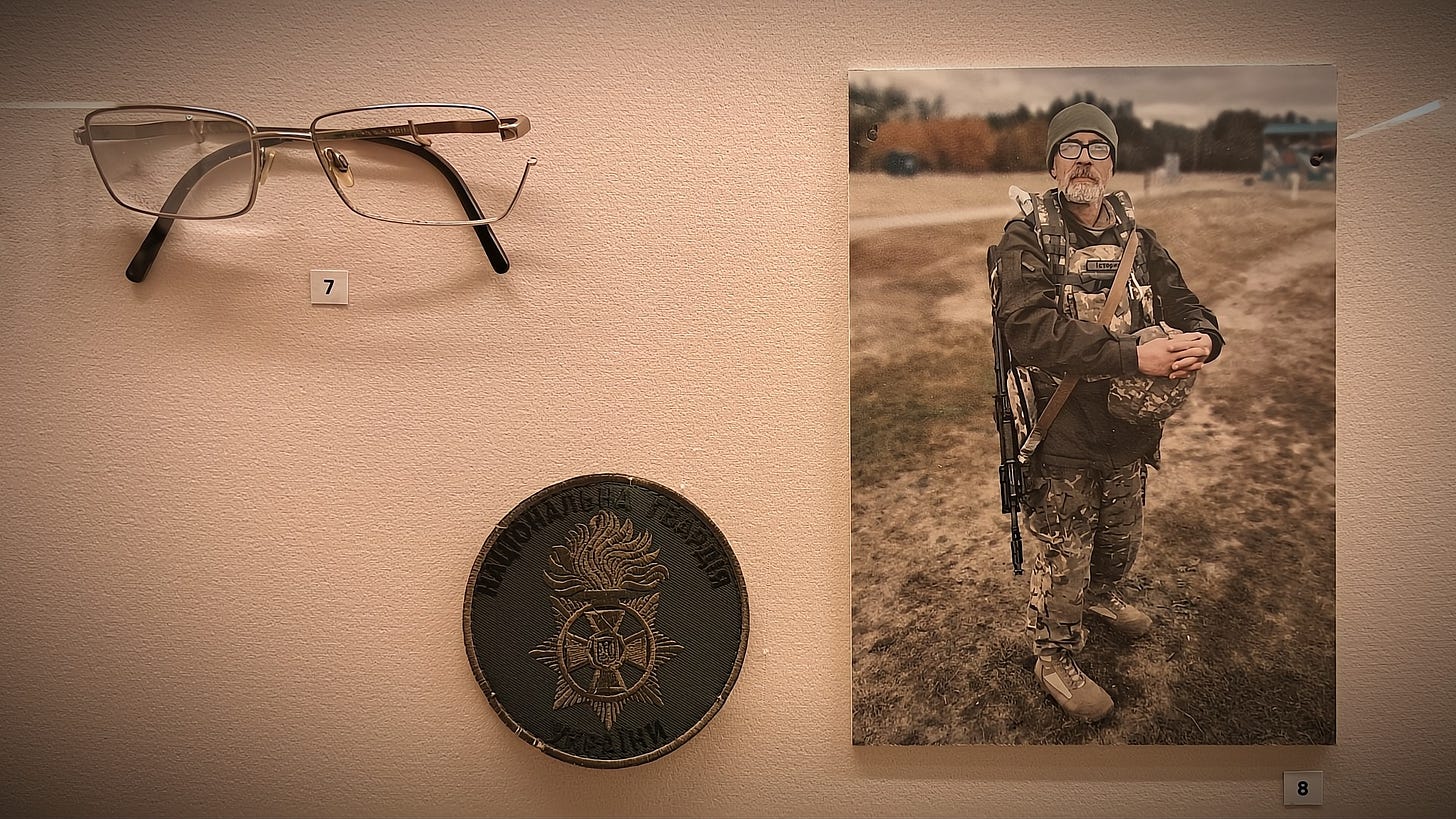
Hello and welcome! My name is Davide and I’m an Italia journalist working and living in Kyiv give for more than one year and half. For those of you visiting for the first time, here’s a bit more about who I am and what this space is. I hope you find the following text engaging.
In Kyiv’s underground rave scene, club entry is generally free, but each time, after placing a sticker over your phone’s camera, someone will inevitably ask you to donate to the army, a charity, or directly to a specific military unit - the Azov Brigade and its offshoot, the Third Storm Brigade, are favored choices.
The Ukrainian techno community, by and large, supports the war, seeing it as the only alternative to ceasing to exist—not just as modern Ukrainians but, under the repressive Russian curtain that they think will inevitably befall the country in case of defeat, as a cultural community.
They express their support not just through fundraising but through action as well. Many of the most famous DJs from the national scene volunteered at the start of the full-scale invasion. Daniel Detcom, who co-hosted the Kyiv Boiler Room in 2021, was one of the first to join. He is still serving in the East and plays his music whenever he returns to Kyiv—perhaps once a year.
The same conviction and effort are shared by most other urban subcultures. In Russian-speaking Odesa, you can chat with anarchists in military uniform at a vegan fast-food spot, where the toilets are plastered with Antifa stickers alongside neo-Nazi military patches. While the war has deepened the divide between the haves and have-nots, it has also healed many internal rifts: Jews have embraced Banderites, Russian speakers have joined groups that were once staunchly Ukraine-purist—all in the name of resisting the invader and protecting their vision of the country.
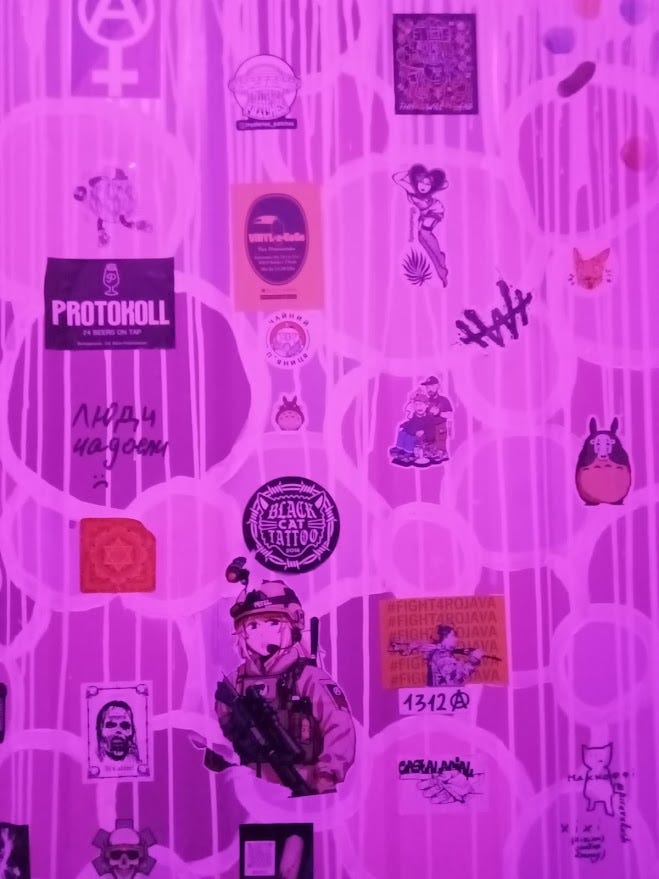
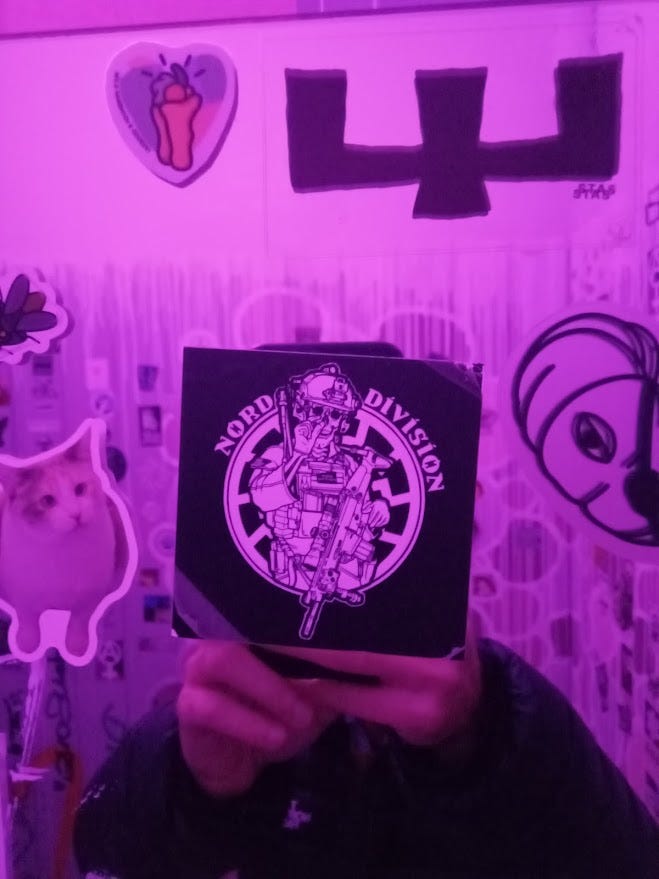
Now, with the war going from bad to worse and the Kyiv government struggling to man the frontline, it’s easy to forget how widespread the Ukrainian will to resist was—and still is; to fail to remember the hundreds of thousands who volunteered at the end of February 2022, the people who donated money to the army, or those who fought the internal cultural battle. A resistance that surprised everyone and kept the country afloat for three years.
At the heart of this resistance sits a class of people who are generally pro-Western, often young, urban, and middle class. This group, numbering hundreds of thousand, forms Ukraine’s warrior elite. I’ve met them dozens of times on multiple frontlines. They are the IT professionals, small entrepreneurs, and lawyers who joined in the first days of the war and became the experienced officers and NCOs that form the spine of the army.
Intellectuals have been especially at the forefront of the fight—not only on book covers and newspaper front pages. In Ukraine, you’ll hardly find a museum, theater, association, or club without photographs of its war volunteers—whether as soldiers, doctors, journalists, or simply doing whatever was necessary. Often, their pictures are displayed on the wall in memoriam. The cultural association PEN Ukraine maintains a registry of cultural figures killed on the frontlines while serving in the army or, like author Viktoria Amelina, working in dangerous zones. The count now stands at more than 100.
This warrior elite fought, spilled their blood, and spent their money both on and behind the frontlines. They were among the first to join the army, took part in some of the most brutal battles, and witnessed some of the most exhilarating victories. Now, after three years, they are exhausted and decimated.
All of this, of course, is not meant to silence or negate the experiences of all the others Ukrainian. The one who have been skeptical or even opposed to the war from the beginning—the millions who don’t want to fight or die, the thousands who have been forcibly mobilized and sent into suicide assault without proper training or weapon - a part of Ukraine that has long been underrepresented and only now we are starting to notice, as a sense of looming defeat sets in. Nor do I intend to defend the patriots, who have a louder voice and a wider audience than I do.
It’s just to point out that it would lead to the wrong conclusion to consider the Ukrainian war effort just as the toil imposed by a blind national elite on a stultified and supine population; that the argument for resisting came only from a small clique of “sorosites” NGO; that the ones who are screaming louder about the importance of defending the country are the same ones hiding behind fake medical exemptions.
Of course, as in any human group, even among the Ukrainians, you’ll find grifters, warmongers and fascists—against whom, it’s also true, neither intellectuals nor politicians have strongly pushed back, making the legitimate argument that they now have to face a much more dangerous enemy.
But to think that only hypocrites, ultranationalists, and corrupt politicians wanted to keep fighting simply ignores the widespread solidarity and hatred that Putin’s war has stirred in every corner of the country. Even in Russian-speaking eastern Ukraine, you’ll struggle to find someone who blames Zelensky instead of Putin for the bomb that destroyed their house.
Aggression breeds response. Even far from the capital and outside the urban middle class, you could see wives and sisters making camouflage nets and candles for their brothers and husbands at the front. This is not just a Potemkin village shown to gullible Western journalists by biased fixers or patriotic-minded individuals, but a reality that, while living here, becomes apparent with every step you take.
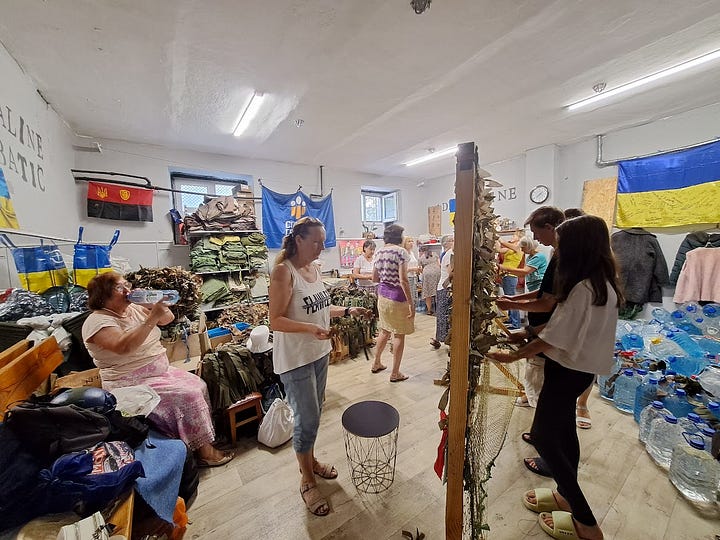
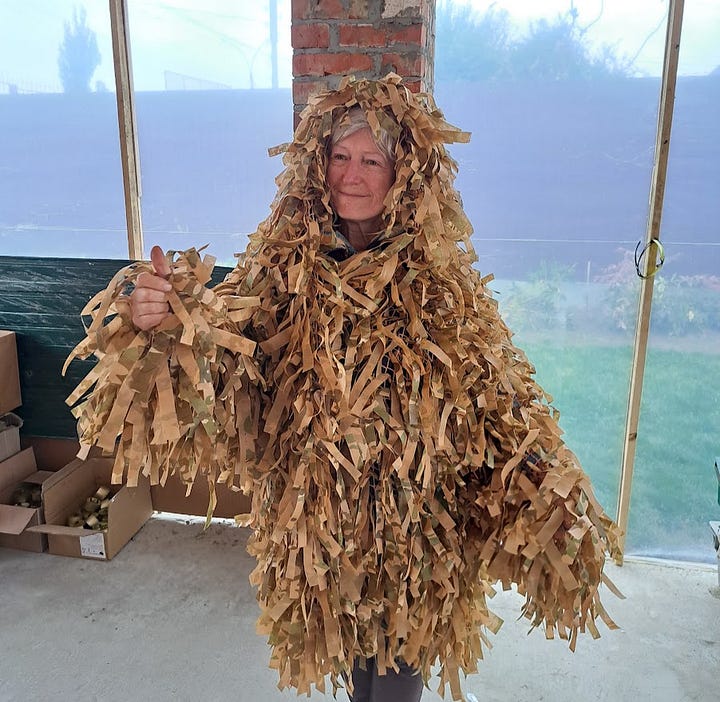
The majority of Ukrainians didn’t have a choice in how the events leading to the war unfolded, and had they, they would probably have made a different choice. But once the tanks rolled in, they proved themselves ready to defend the country against a superior enemy—just as almost any people would try to do in the same circmustances.
They have been doing it for three years, and now, after much blood and destruction, with the prospect of imminent peace negotiations, that determination is waning. Fewer and fewer people are donating or volunteering, while finding new recruits gets more difficult every day. And so, many outside and inside the country, have started to ask the question: why the Ukrainians don’t want to sacrifice even more?
Journalists and sociologists have pointed out the many shortcomings of the Ukrainian state and its current national project—the corruption, the potential divisiveness of its myths and heroes, its lack of any promise of social transformation. These are all valid arguments that often haven’t been discussed enough, not even among Ukrainians. But, knowing all that, one must be surprised not that few are willing to fight, but that so many have fought until now.
On the eve of the invasion, the common opinion was that Ukraine would have folded like a piece of paper in front of the Russian assault, little more than the proverbial failed country where only a handful of people hold any kind of loyalty to the state. Instead, hundreds of thousands of people joined the military, made Molotov cocktails in their garages or donated money to the army—and, behind the frontlines, many decided to stop speaking Russian, started to rediscoverUkrainian writers and music, and, in their own way, embraced a much more thoroughly Ukrainian national identity.
Maybe Ukraine is not North Vietnam, which marshaled its population through a 30-year war with more than one million dead. But it’s also not South Vietnam, a country which many of its own citizens considered a puppet state with no legitimacy—and, as corrupt as Ukraine may be, nobody bought the rank of general from the cousin of the president.
War fatigue befalls every fighting nation, especially when things on the frontline take a turn for the worse. Strictly numerical comparisons with past conflicts, made to argue that Ukraine’s lack of troops exposes the illegitimate nature of its nation-state project, are pointless. Ukraine is a modern post-industrial society, with an aging population and no recent tradition of a mass army. And, as I’ve argued elsewhere, the current war is, by design and constraint, a conflict that is limited—both in the number of people at the front and in the share of the economy devoted to the conflict.
What is happening now is that, after a long struggle with no plausible “theory of victory” in sight, many Ukrainians are beginning to consider whether it’s time to stop, if the deal they can secure is not too bad—just as many reasonable people would in the same situation. And while the political leadership dithers and deliberates, some have already begun to “vote with their feet,” stepping away from direct support for the war.
Maybe this is a sign that all this sacrifice and effort was the last swan song of this warrior elite—a sign that, consumed in the flames of war, the idea of Ukraine that motivated their resistance will give way to a new and different arrangement or disappear altogether, turning Ukraine into the failed state many already believed it to be. But I don’t think so. I believe the passions stirred by this conflict were real and will stay with Ukrainians—and the rest of us—for some time.
Thank you for reading. This is my second English article published in this newsletter and many more will follow. If you like my content, please consider liking, commenting, or subscribing. If you want, you can also follow me on X, where I frequently write in english. Thanks!




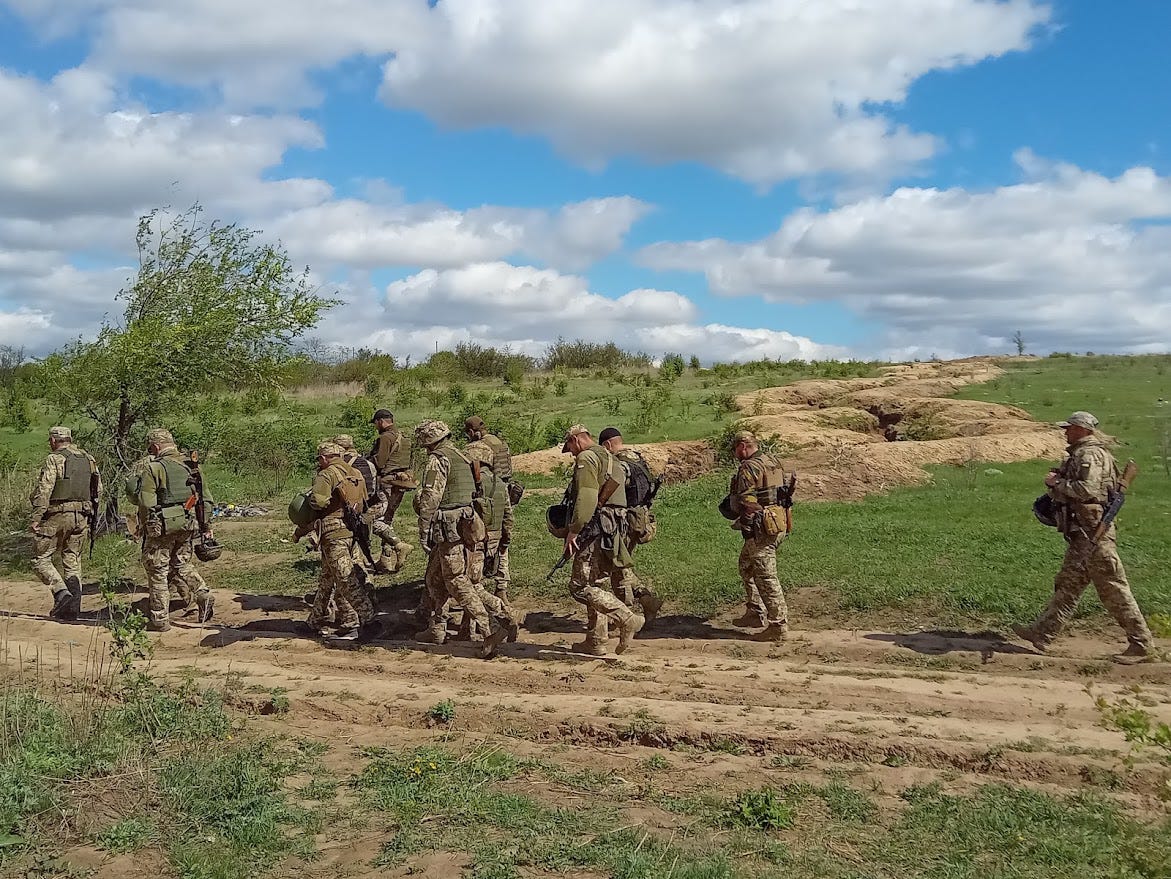
Most impressed with your exposition. I have followed the war for three years, but you gave me a backstory I didn’t know anything about. Thank you.
Bel pezzo, complimenti per il lavoro che fai